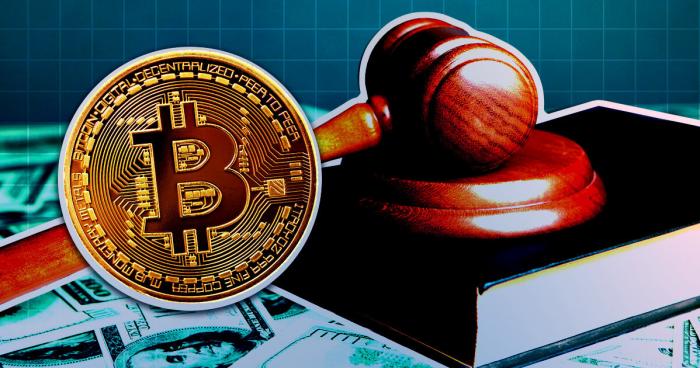 US crypto regulation on track despite recent SEC enforcement actions
US crypto regulation on track despite recent SEC enforcement actions US crypto regulation on track despite recent SEC enforcement actions
CoinMarketCap 2023 Crypto Playbook details the U.S. regulatory outlook according to Jeff Zelkowitz.

Cover art/illustration via CryptoSlate. Image includes combined content which may include AI-generated content.
Despite recent SEC enforcement actions against Kraken and Paxos, Jeff Zelkowitz, Executive Vice President at APCO Worldwide, said there is appetite and willingness among U.S. lawmakers to “get something done.”
Zelkowitz shared his U.S. regulatory outlook in CoinMarketCap’s 2023 Crypto Playbook. The Playbook covered what may lie ahead for various sectors, including DeFi and user adoption, according to leading figures in the space.
Crypto regulation was a pressing issue last year, featuring numerous flash points such as the Tornado Cash sanctions and the EU’s Markets in Crypto-Assets (MiCA) legislation singling out stablecoins.
For 2023, Zelkowitz concedes there is a long road ahead, but he sees lawmakers making concerted efforts in the right direction.
U.S. crypto regulation is a mess
Recent enforcement actions have fostered the narrative that the SEC is hellbent on hampering the U.S. crypto industry, ultimately driving innovation to friendlier jurisdictions.
However, Zelkowitz has a different take on the matter. He talked about a desire from both political parties to cement U.S. financial dominance, using technology to do so. At the same time, Zelkowitz conceded that lawmakers must balance this with tackling bad actors.
“What is clear is that U.S. policymakers from both major parties want to reinforce American leadership in the global financial system and at the technological frontier – while defending this frontier against bad actors.”
A key criticism of the U.S. regulatory approach to digital assets is the lack of a unified framework. The upshot of this means oversight is done through a jumble of state and federal financial regulators applying existing legislation. Some argue that this method cannot appropriately capture the nuances of cryptocurrencies.
Adopting this approach also creates an overlap, even friction, between different regulators, further muddying the waters on compliance.
The U.S. regulatory outlook
Recent efforts to rectify this issue include the White House’s Executive Order and Senators Gillibrand and Lummis’s proposal for the Responsible Financial Innovation Act, which Zelkowitz cited as evidence of the “collegial tone” between U.S. lawmakers in pushing for appropriate crypto regulation.
However, this momentum came unstuck due to the U.S. midterm elections and the FTX collapse, Zelkowitz said.
Referring to several high-profile SEC enforcement actions, including the ongoing case against Ripple, Zelkowitz admitted that the general public has been “roiled” by the apparent unfairness of the case. But he explained the agency’s stance as grounded in decades-old securities legislation.
In turn, this is opening up calls for the CFTC to step in and make its mark – a move championed by some who view the CFTC as a “softer touch” compared to the SEC.
Regardless of whether that is the case or not, there remains a gulf to close in deciding how to move forward, starting with the classification of cryptocurrencies as either securities or commodities.
Zelkowitz acknowledged there is much more work to do in shaping an appropriate framework. But thankfully, he sees a readiness from both political parties to make it happen.



































